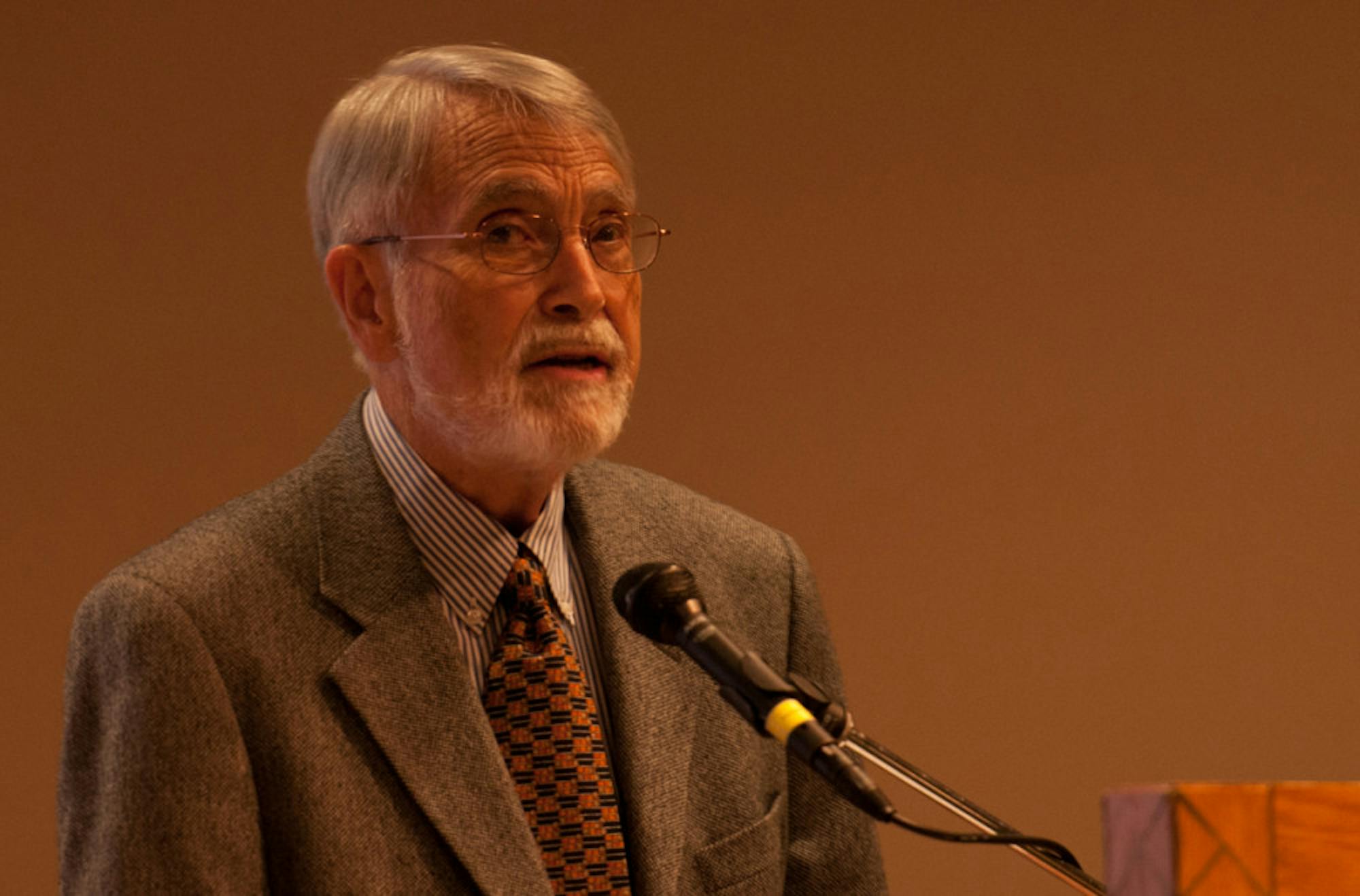
Seigel is professor of history emeritus at New York University.
Peter Holland, the McMeel Family Chair in Shakespeare Studies, sits on the jury that reads the books nominated for the Laura Shannon Prize. Holland said Seigel has a special talent for highlighting illuminating details while maintaining a broad view of a topic that facilitates enriching connections to other topics and disciplines.
“The lot of a jury member for a book prize is not always, and might I say not usually, a pleasant one,” Holland said. “Many of the books one is required to read are hard work, some are downright disappointing. Few are gripping and enjoyable. 'Modernity and Bourgeois Life' is an extraordinary exception. It was quite simply a pleasure to read.”
James McAdams, director of the Nanovic Institute for European Studies, said the jury looks for specific criteria, and any book that wins the award demonstrates potential to enhance our understanding of the complex body of Europe.
“[This award] captures what’s so special about the Nanovic Institute and Notre Dame as a whole,” McAdams said. “That is to say, a focus on interdisciplinary approaches to scholarship and intellectual engagement, a focus that is mainly humanistic and focuses on the questions that matter for humanity. We also look for a focus on current-day Europe as a product of centuries of development.”
Seigel was able to give the audience insights into his current work concerning individuals who have attempted to blur the lines of culture and live “between cultures” in rich and distinct ways.
“The subjects of my work are individuals who, without seeking to depart from their cultures of origin, tried to live in a second culture,” he said. "These are people whose association with their second culture becomes part of their belonging to the first. They sought to carve out an intercultural space where they could develop two identities and self-consciously impose them with each other.”
Seigel cited Louis Massignon, a French Catholic scholar who studied Islam, as an example of an individual who worked to combat cultural divides. Seigel said Massignon's work illustrates of the importance of reaching a higher level of understanding about culture in relation to one's self.
“In our own historical moment, when the relations between western culture and Islam are questions of great moment, I think Massignon’s attempt to draw the two forms of life together in his own person has a certain relevance,” Seigel said. “Massignon’s career and thinking suggest that deepening our involvement in the cultures that form and nurture us can be compatible with the ability to acknowledge that the values and practices found in other ways of life may make up for the defects in our own.
“Surely that is a better formula for relating ourselves to the demands cultures make on us, to the essential nurture they offer and to the intellectual and moral limits they impose, than the unthinking identification with a single one with which too many of us remain content."













